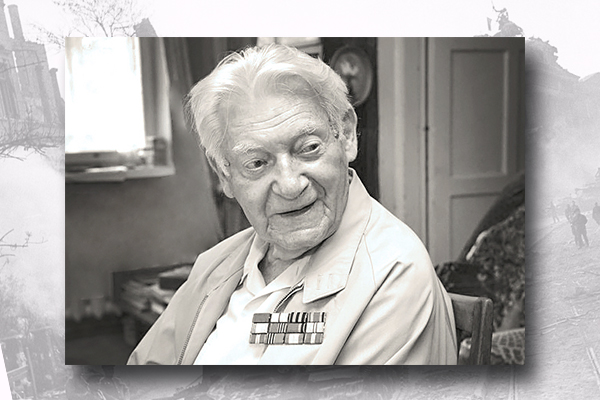"The Great Patriotic War in the lives of employees of Yanka Kupala State University of Grodno": Sergey Berkner

Sergey Samuilovich Berkner was born on May 16, 1923 in Bialystok. In 1942 he joined the underground anti-fascist organization in the Bialystok ghetto. In 1943, he joined the partisan group "Forward", was a spy for the staff of the Konstanty Kalinowski brigade. Sergey Berkner awarded the Order of Patriotic War 2nd class (1985), medals "Partisan of the Patriotic War" 1st class, "For Victory over Germany in the Great Patriotic War 1941-1945".
Since 1945, Sergey Samuilovich Berkner worked as a fitter at Grodno Pedagogical Institute. In 1949, he graduated from the English Department of the faculty of foreign languages of our University, and since 1951 worked as a teacher of the Department of English in Ulyanovsk. Since 1962, Sergey Berkner has been a Professor at the Department of English at Voronezh State Pedagogical University. Doctor of Philology, Professor, Sergey Berkner wrote a memoir-historical book "The Life and struggle of the Bialystok ghetto".
From the memoirs:
"At my father's insistence, I was smuggled over the ghetto fence to a partisan unit in the forest. Other prisoners saw this as madness and a deadly risk. Many then believed that somehow they would survive the ghetto, that the Germans sent people from here not to the furnaces, but "to work".
But my father already saw how it would end soon. So he didn't just give me life once-he gave me fate. The partisan resistance itself was a chance to survive. I survived. I met my future wife in the group. And my father died in a concentration camp, where all the inhabitants of the ghetto – children, old men, and women-were taken from the Bialystok freight station. But first he and other underground workers started an uprising in the ghetto. It was an act of dignified death. By the way, they were secretly helped by some of the Germans. We had a friend, the German social Democrat and anti-fascist Arthur Villa Sade. In Bialystok he was officially in charge of the textile mill. Before I left the ghetto for the partisans, I met with Sade. He gave me a Belgian carbine. Already being in the partisans, I appreciated the gift-we had weapons worth their weight in gold.
Before joining the Red Army, more than half of the detachment died. The rest lived in dugouts. Food for themselves was obtained in the villages or captured the German wagon train. Mainly engaged in sabotage in the German rear and helped Soviet prisoners of war.
Not far from our deployment was a small camp for Soviet prisoners of war. We killed the German guards and released 50 people. Exactly half of them went to us as partisans."
From the book "The Great Patriotic War in the lives of employees of Yanka Kupala State University", author-compiler - Andrey Getsevich.







































